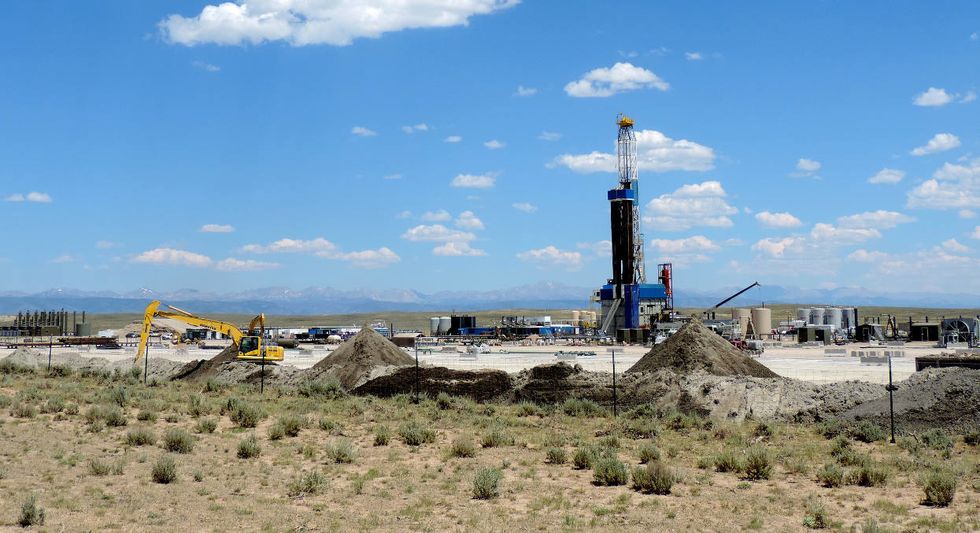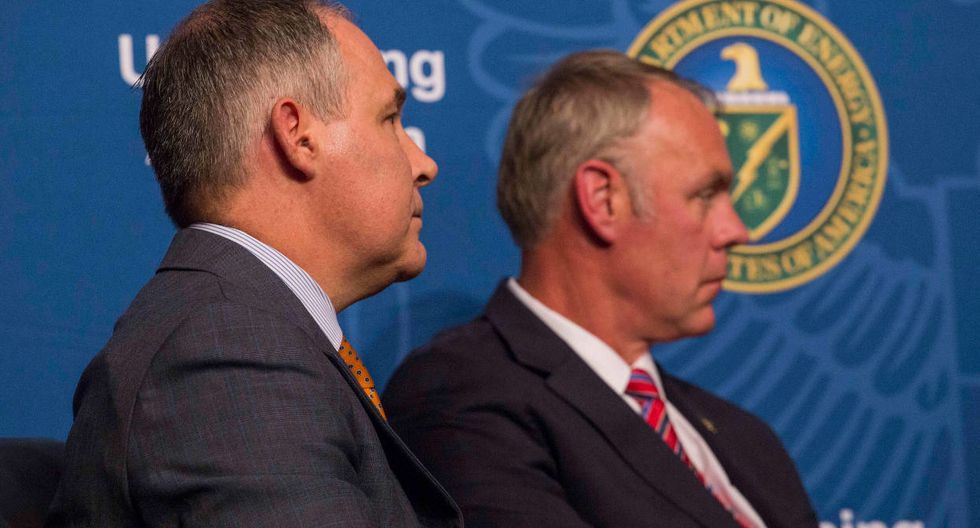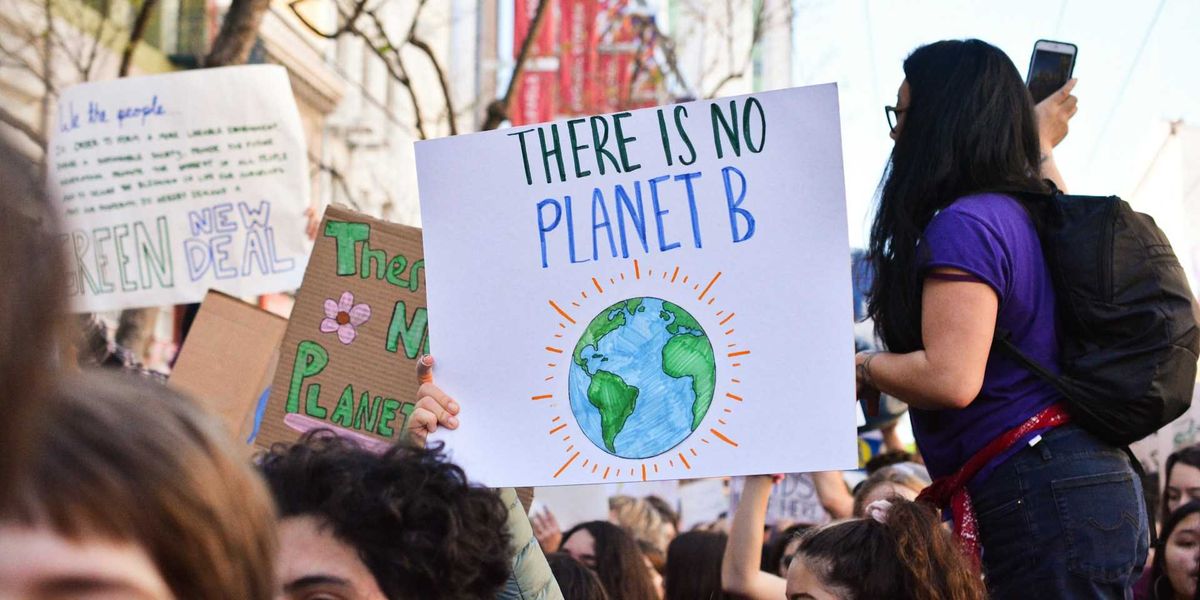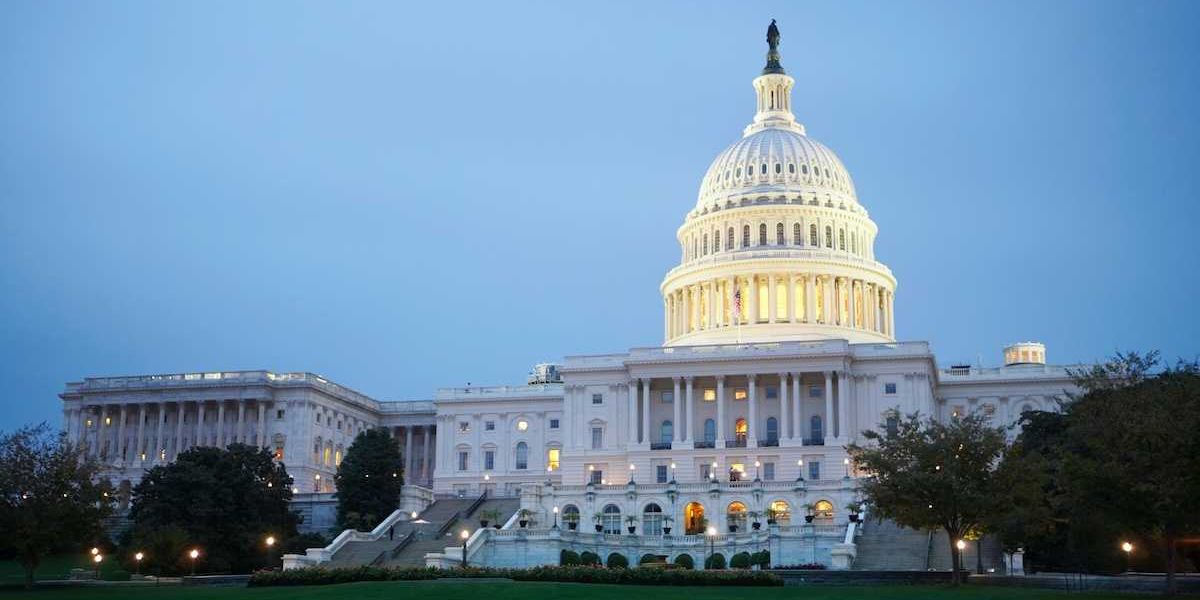Peter Dykstra: Year in review — Measuring the US government’s 2018 footprint ... on Mother Nature’s throat
Some of the worst outrages of the year
The year saw President Donald Trump's promised multi-front assault on environmental values, regulations and science bear some toxic fruit.
Climate denial may finally be in decline in much of the world, but in the U.S. government, it rises again and again, like the drowned-in-the-bathtub villain in a Stephen King movie.
From the Environmental Protection Agency to the Education, Energy and Commerce Departments, government websites were scrubbed clean of information on climate change. Trump also continued his pitch for "clean coal" and promised a big comeback for a domestic industry that began and ended the year on life support.
The U.S. embarrassed itself at a December United Nations climate meeting in Poland with an awkward and misplaced pitch for fossil fuels.
Ted Cruz won re-election despite an unexpectedly strong challenge from Congressman Beto O'Rourke. Cruz is expected to become chair of the Senate Committee on Commerce, Science, and Transportation. As a subcommittee Chair, Cruz oversaw a hallucinatory hearing on climate science that featured a panel of five climate scientists, four of whom were deniers.
It seems that just about anything that the Obama Administration had done related to the environment has been targeted by the Trump Administration.
Just this month alone: the Trump Administration proposed rollbacks for the Waters of the United States rule, which protects tens of thousands of small streams and adjacent wetlands; and Congress failed to reauthorize the Land and Water Conservation Fund, a bedrock piece of the federal conservation effort that had seen bipartisan support and virtually no controversy in its 53-year history.
Drill, baby, drill!

Sarah Palin's signature phrase isn't back in favor, despite fitting within the three-word policy limit of Trump supporters, like "Lock Her Up," "Build the Wall," or the highly successful, "Drain the Swamp."
But its spirit took wings in Trump's second year, as the Administration reached for its goal of energy dominance.
Oil and gas drilling or exploration has shoved aside species and habitat protection and the more benign use of not just public lands, but offshore areas as well.
The Administration moved to limit protection for the sage grouse, a Western bird whose return from the brink is considered an endangered species success story. But alas, the grouse stood in the way of increased fossil fuel development.
The President's greatest hits
Trump didn't often turn his utterances and Twitterances to the environment, but when he did, gave us plenty of facepalm moments.
- In his State of the Union speech, Trump proclaimed the end of the "war on beautiful, clean coal" without acknowledging that cheaper natural gas and renewables were driving coal out of the marketplace.
- In the wake of the hellacious Camp Fire that wiped out the northern California town of Paradise, Trump pointed to the sylvan nation of Finland, whose President told Trump that a diligent program of "raking and cleaning" the forest floor had kept wildfires at bay. President Sauli Niinistö politely said he could recall no such conversation, but the Finns responded to the #RakeNews with a riot of national snark. The hashtag "#haravointi" – Finnish for raking – went wild, and Finns took to the forest to Instagram themselves, posing with their rakes.
- When the alarming National Climate Assessment was published, Trump told reporters that it was "fine." He said he'd seen the report and read "some of it." (The cover page? Maybe?) He also said he did not believe that climate change would have a serious economic impact.
- He rolled out his obligatory tweet questioning climate change on the season's first cold snap in the Northeast .
All the President's Henchmen

Scott Pruitt entered his second year as EPA Boss as a seasoned liability and late night TV punching bag. He did not survive, resigning in July, as announced by Trump on Twitter.
Pruitt's coziness with industry, and his history of hostility toward the agency he was appointed to run, are not what did him in. Instead, it was his series of picayune scandals, unworthy of a county commissioner, which included dispatching staff to shop for a mattress and hotel skin lotion; maneuvering to secure a Chick Fil-A franchise for his wife; re-assigning field staff to his own enormous security detail; and installing a Cone of Silence-like private phone line in his office.
Former coal lobbyist Andrew Wheeler became his top deputy, and eventual successor.
Ryan Zinke defied many predictions by nearly surviving the year as Interior Secretary. Trump tweeted his resignation announcement earlier this month. The former Eagle Scout also defied the cherished Scout Law about being honest and trustworthy.
With as many as 14 investigations into potential scandals and conflicts, Zinke did what any Scout would do: He fired Interior's acting Inspector General. His attempts to replace Mary Kendall with a loyalist with no experience as an ethics watchdog were turned back, however.
He parted with Trump on citing the cause of the Western wildfires, blaming "radical environmental groups" instead of lax forest-sweeping practices. Number four of the 12 Scout laws is "Be a friend to everyone, even people who are very different from you."
For those of you who are keeping score of such things, Rick Perry is the only survivor among the four Eagle Scouts in Trump's original cabinet (Zinke, Jeff Sessions, and Rex Tillerson).
Zinke's deputy, David Bernhardt, leads a short list of likely replacements. Like Wheeler at EPA, Bernhardt came to government after a career lobbying for extractive industries. And the nominee to head the US Fish and Wildlife Service is Aurella Skipwith, a veteran attorney for Monsanto and other non-wildlif-ey corporations.
And the Senate's alpha-dog climate denier, Jim Inhofe, got waylaid by his own, non-climate scandal at year's end. The Gentleman from Oklahoma loaded up on Raytheon stock while becoming a fierce advocate of increasing military spending. Inhofe denied that Raytheon's healthy increase – nearly 20 percent since Trump's election, despite a recent sharp drop – was human-influenced.
Thus we careen into 2019. The Democrats will take control of the House of Representatives, and have vowed to explore the darkest recesses of the Swamp.
The alleged misdeeds of Pruitt and Zinke are sure to be pursued, even though both are out of office. This is fair game in current American politics.
Am I right about that, Hillary?













